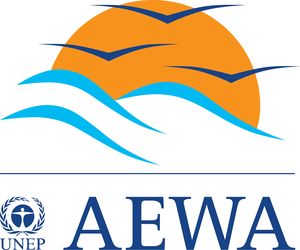
Permanent Secretariat to the Agreement on the Conservation of African-Eurasian Migratory Waterbirds
Search Open Yearbook
This information is part of the Open Yearbook, a free service of UIA's subscription-based Yearbook of International Organizations (YBIO). It includes profiles of non-profit organizations working worldwide in all fields of activity. The information contained in the profiles and search functionality of this free service are limited.
The full-featured Yearbook of International Organizations (YBIO) includes over 77,500 organization profiles, additional information in the profiles, sophisticated search functionality and data export. For more information about YBIO, please click here or contact us.
The UIA is a leading provider of information about international non-profit organizations. The aim of the Open Yearbook is to promote the activities of international non-governmental organizations (INGOs) and intergovernmental organizations (IGOs).
Contact Details
Main Website: https://www.unep-aewa.org/
World Migratory Bird Day: http://www.worldmigratorybirdday.org/
Facebook: https://www.facebook.com/unep.aewa
Founded
1999-11 Cape Town South Africa
History
Available with paid subscription only.Aims
Based on the fundamental principles of the Agreement, parties shall: take measures to conserve migratory waterbirds, giving special attention to endangered species and to those with unfavourable status; protect endangered migratory waterbird species in the Agreement area by strict legal protection; ensure sustainability of any use of migratory waterbirds; identify sites and habitats and encourage their protection, management, rehabilitation and restoration; develop and maintain programmes to raise awareness and understanding of migratory waterbird conservation issues.
Events
48 past events available with paid subscription only.Activities
Available with paid subscription only.Structure
Available with paid subscription only.Languages
Available with paid subscription only.Staff
Available with paid subscription only.Finance
Available with paid subscription only.Relations with Inter-Governmental Organizations
Links with:
- T-XT9211 - Convention on Biological Diversity (Biodiversity convention);
- T-XT7980 - Convention on the Conservation of European Wildlife and Natural Habitats (Bern convention);
- T-XT7638 - Convention for the Protection of the Marine Environment and the Coastal Region of the Mediterranean (Barcelona Convention);
- T-XT7109 - Convention on Wetlands of International Importance Especially as Waterfowl Habitat (Convention on Wetlands);
- F-XF2335 - Global Environment Facility (GEF);
- E-XF0407 - Secretariat of the Convention on the Conservation of Migratory Species of Wild Animals (UNEP/CMS);
- E-XE1306 - Secretariat of the Convention of Wetlands;
- E-XE3253 - Standing Committee to the Bern Convention on the Conservation of European Wildlife and Natural Habitats;
- E-XE4161 - UNEP;
- E-XE8372 - UN Environment Programme World Conservation Monitoring Centre (UNEP-WCMC).
- Observer status with: Baltic Marine Environment Protection Commission - Helsinki Commission (HELCOM)
Relations with Non-Governmental Organizations
Links with:
- B-XB1722 - BirdLife International;
- British Trust for Ornithology (BTO);
- C-XF1397 - Conservation International (CI);
- D-XD4367 - European Bird Census Council (EBCC);
- E-XE3774 - Federation of Associations for Hunting and Conservation of the EU;
- F-XE3584 - Foundation Working Group International Waterbird and Wetland Research (WIWO);
- C-XC2114 - International Council for Game and Wildlife Conservation;
- A-XA2654 - International Union for Conservation of Nature and Natural Resources (IUCN);
- E-XE3492 - Oiseaux migrateurs du paléarctique occidental (OMPO);
- S-XS0250 - Pan African Ornithological Congress (PAOC);
- Royal Society for the Protection of Birds (RSPB);
- C-XB0004 - Wetlands International;
- G-XM3823 - Wildfowl and Wetlands Trust (WWT).
Publications
Available with paid subscription only.Members
Available with paid subscription only.Type I Classification
Available with paid subscription only.Type II Classification
Available with paid subscription only.Subjects *
- Biosciences → Evolution and Species
- Vertebrates: Warm-blooded → Birds
- Geography → Wild
- Societal Problems → Protection
- Societal Problems → Endangered Species
- Law → Agreements
- Conservation → Conservation
UN Sustainable Development Goals **
UIA Org ID
XE3603
** UN SDGs are linked to the subject classification.
← return to your search page to find additional profiles.
UIA allows users to access and make use of the information contained in its Databases for the user’s internal use and evaluation purposes only. A user may not re-package, compile, re-distribute or re-use any or all of the UIA Databases or the data* contained therein without prior permission from the UIA.
Data from database resources may not be extracted or downloaded in bulk using automated scripts or other external software tools not provided within the database resources themselves. If your research project or use of a database resource will involve the extraction of large amounts of text or data from a database resource, please contact us for a customized solution.
UIA reserves the right to block access for abusive use of the Database.
* Data shall mean any data and information available in the Database including but not limited to: raw data, numbers, images, names and contact information, logos, text, keywords, and links.